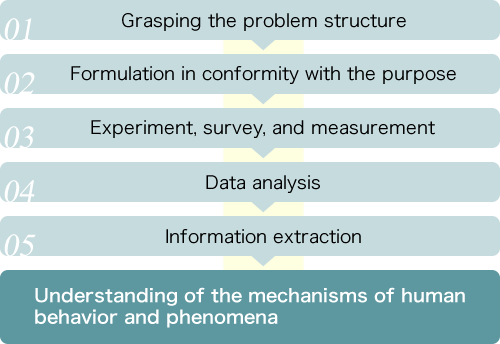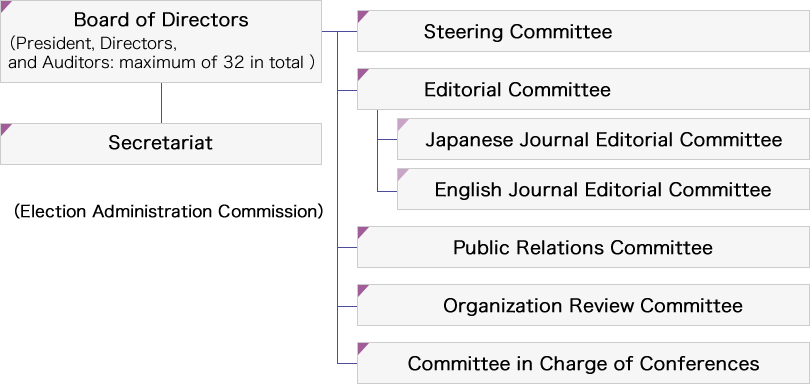The Behaviormetric Society (BMS) is a middle ground for the assembly of researchers and practitioners who aim at understanding human behavior through the application of quantitative methods, approaching issues from both sides of the development of theory and methods and their application. Its parent body, “Symposium of Behaviormetrics”, was started in August 1969. The BMS was established in September 1973. Subsequently, the BMS actively conducted research activities and became a registered organization of the Science Council of Japan in August 1984.
The BMS members’ fields of expertise encompass a broad range. They conduct interdisciplinary and cross-sectional research activities on the development of metric methods and their application related to human behavior in a broad sense.
- Laws
- Political Science / International Relations
- Economics / Population Study
- Marketing
- Geography
- Sociology
- Education
- Psychology
- Linguistics
- Cognitive / Information Science
- Nursing
- Medicine
- Agriculture, Forestry and Fisheries / Biology
- Engineering
- Mathematics / Statistics
The position of behaviormetrics is to discuss problems that are common to humanity and to deepen understanding of human behavior and social phenomena from both sides of theory and application, not being bounded by specific methods or fields, but respecting the originality of various fields of expertise.

The term quantitative method evokes statistical data analysis, including multivariate analysis, which is surely the center of our interest. However, behaviormetrics does not deal solely with statistical methodologies. Behaviormetrics assesses behavioral phenomena in various fields and assigns importance to all the set of processes presented in the chart on the right. We aim to elucidate the mechanisms governing human activity through the processes, broadly build knowledge related to humanity, and contribute to identifying and solving problems in fields across society, economy, culture, and technology.
Therefore, our aims can be summarized as shown below.
- To conduct research on the development of quantitative methods related to human behavior in the broadest sense and their application to widely various fields
- To promote the spread of quantitative methods and the liaison and cooperation among researchers
- To return research results to society
Structure of the BMS
At present, the structure of the BMS is the following. In addition, other committees, such as a Publication Committee, are installed if needed.

Content of Activity
- Holding Annual Conference (research meeting) and General Meeting: once a year
- Publishing the Society journals
- Japanese journal “Kodo keiryogaku(The Japanese Journal of Behaviormetrics)”: two issues a year
- English journal “Behaviormetrika”: two issues a year
- Holding symposia: as the occasion arises
- Holding tutorial seminars, spring camp-style seminars, etc.: as the occasion arises
- Publishing the newsletter “Behaviormetrics Newsletter”: four issues a year
- Sending mail news: as the occasion arises
- Co-hosting and supporting international research meetings
- Encouraging excellent studies (Society Awards)
With regard to detailed information, all the information can be viewed by clicking the links located at the right of each activity above. Recent studies and research activities can also be found on the Page of Recent Society Activities. We organized and presented major themes and titles selected from the “special issues” in the Society journals, projects in Conferences (tutorial seminar, special lecture, special session, etc.), symposia of Behaviormetrics, and study group meetings. Additionally, we listed the names of each book of a 13-volume “Kodo keiryogaku shirizu” planned by the Publication Committee of the Society and written by members of the Society. Please take a look at it.
Number of Society members
Number of members of the Society is the following as of February 25, 2019.
| Regular member | 746 (incl. 5 overseas members) |
|---|---|
| Associate member (Student member) | 74 |
| Honorary member | 21 |
| Senior member | 38 |
| Supporting members (Corporate body) | 22 |
| Total | 901 |
